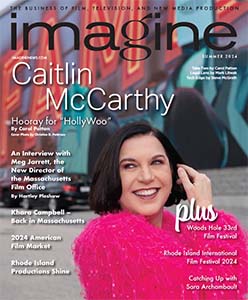It starts with the story. Everybody’s got one. I sure have enough people approaching me with the greatest idea ever and wouldn’t I like to write it for them? No, is my standard answer and it’s not personal. Write it yourself, I always say, then it will be personal. Personal’s good. Not as in we can’t wait to hear the sexy secrets of your shocking biography, but in that your voice is incomparable; our challenge, yours, I mean, is to translate it into words that will resonate across borders and through time and touch hearts and influence minds.
If it improves your already-scintillating love life, even better. If it makes you famous and wins you, say, an Oscar, terrific, but it still has to start with a good story.
Where’s that come from again? We’re going to create one right here, in these pages. It’ll take us, plus or minus, a year. We’ll collaborate; collaborating’s great; I’ll start. Let me know when you’re ready to pitch in. I’ll go out for coffee while you’re thinking up fabulous ideas and writing your acceptance speech. But I don’t drink coffee, so there’s a character trait – a prolific writer who doesn’t drink coffee. What’s that all about? Somebody has a secret. Secrets are great, too, partly because, again, everybody’s got one and, dramatically, it gives us something to reveal. Audiences love secrets; they love trying to figure them out and we love to mess with their heads, so that’ll be fun. Table that for the moment and remember the character trait thing: the man who doesn’t drink coffee; who the hell is he? We’ll get back to it.
First we’re storyboarding. It’s kind of like water-boarding but less humane. Because, while everybody’s got a story, not everyone finds telling it second-nature; for some it’s torture; it’s worse than whatever’s the worst for you – I’m trying to get you to think; we’ll be doing a lot of that. So what’s worst for you, what’s the hardest thing you do? Get up, go to work, tell the truth, be productive, finish what you’ve started? Clean your closet, communicate with your lover, practice your guitar, practice safe sects? That was a homonym, by the way; also a surprise. We’ll get back to both of those later, too, word precision and why it matters, and surprises. Audiences expect surprises, and what a perfect oxymoron that is, speaking of figures of speech. Table that, too.
Isn’t storyboarding actually graphic-novelizing your script after you’ve written it? If you want it to be, if you want to be conventional. I think stories are collections of images, like photo albums. I gave you an image, remember? The prolific writer who doesn’t drink coffee. Picture that. Picture where the writer doesn’t go not to get coffee and how he gets there and whom he interacts with en route and suddenly we’ve got two pages of images and our virtual storyboard has begun to fill itself in.
Write what you know, Mark Twain said, but what did he know? He knew about paddle wheelers on the Mississippi, but that’s not all he wrote about. He went to King Arthur’s Court and Calaveras County; the what-he-knew part was his world view; he took that with him everywhere. So what do we know? I know, for example, a lot about women; that’s a good premise. Who doesn’t like women, other than Republican lawmakers? Me, personally, I love women and, that said, I don’t know anything about them. When it comes to women, I’m an idiot, like most men. But I’ve written some pretty terrific ones – the mother and daughter in ON GOLDEN POND, the three generations in THE WEST SIDE WALTZ, the tormented teenager in HEAVENLY ANGLE. Where’s that come from?
I’m going to confess something and that’s a big part of storytelling, opening the curtains and showing our pain and passion, our fears and fantasies. Here goes, this is hard: my mother was a woman. For many, many years. Both my sisters are, also, one a longtime cancer survivor now raising her young grandsons, the other overcoming her own challenges to become as kind and generous a person as I’ve ever known. They’re beautiful women, my sisters. I’ve dated a few beautiful women, too, and I’m married to one, to an angel who’s taught me, belatedly, everything I ever wanted to ask about love but was afraid to know.
So? Try this: the prolific writer goes not for coffee but to visit his aged, stroke-victim mother who’d rather live in a rented trailer with round-the-clock care than be put into a home. She’ll ask him to wheel her out to the pasture, to watch the baby goats romping in the gentle rain. Storyboard that. It’ll be the last time he’ll see her awake. She’ll ask him a question, her words slurred but her meaning sharp as an arrow: ™Is it over? Your marriage.∫ He’ll hesitate – he and his first wife have grown distant – but he’s not sure how much his mother can process. She, conversely, has no time for evasion; she’s dying. ™Are you lonely?∫ she’ll ask. ™Because you always seemed lonely when you were with her.∫
See how easy that is? She’s a beautiful woman, the mother character. She’s a mess, she’s mad and raging at the plight fate has condemned her to, but she aims her stunning blue eyes at him and in them he can see all of life, hers and his, stretching beyond the misty meadow the scene takes place in and he knows, we can see, what he needs to do. And right there, the story starts.
Let me know where you want to take it. Send your virtual images to me here, at Imagine; I’ll steal them shamelessly and we’ll create something amazing. BEAUTIFUL WOMEN, by Ernest Thompson and you.
Ernest Thompson, an actor, director and the author of more than thirty screenplays, including the classic ON GOLDEN POND, for which he won an Oscar, a Golden Globe and a Writers Guild Award, offers private coaching and script analysis (ad page 30), weekend workshops at his farm in New Hampshire, and this winter will teach advanced acting classes in Boston and elsewhere. For more information, visit www.ErnestThompson.us.





